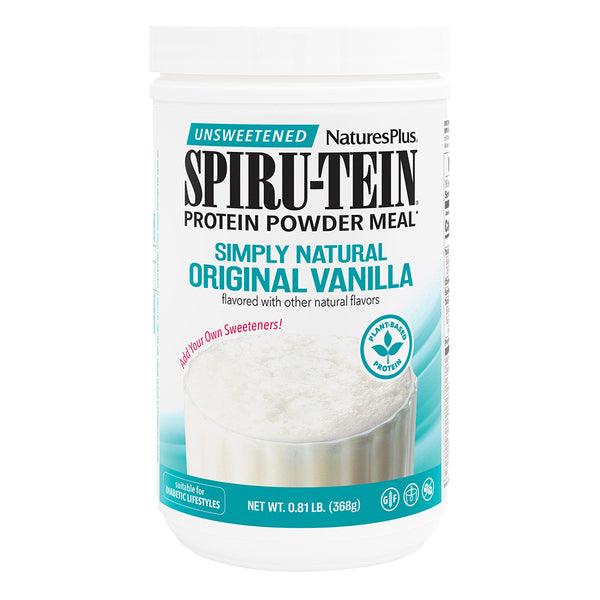Your first day on campus: You’ve moved everything from the car into your dorm room, said goodbye to your parents…and now you’re on your own.
Starting college is exciting, as it should be. But with that freedom comes the responsibility of caring for yourself, especially in terms of adopting lifestyle habits that will give you the energy you’ll need to power through classes and other activities.
Here’s how to build a solid foundation for greater well-being, in college and beyond.
Pre-College Health Prep
That foundation starts with doing your health-related prep work.
The packet you received with your acceptance notice should have included a health form. Have your healthcare provider’s office fill it out with a record of all of your immunizations; be sure it includes information on allergies and/or medications, if applicable. Make a copy of this material and take the copy with you to school.
If you haven’t gone for a physical recently, that may be required as well.
You can talk to your provider about scheduling telehealth visits during semesters; if that’s not possible, ask the office if they can recommend someone near the school. Once you’ve arrived on campus, find out if there is a student health center and what hours it’s open.
In addition, “you’ll need to make sure that you have health insurance while you are at college,” says the Center for Young Women's Health (CYWH) at Boston Children's Hospital. See if you’re covered under a parent’s or guardian’s plan, and take a copy of your insurance card with you. Make sure you’ll be able to get medication refills, either at a pharmacy near the school or via mail.
You may also want to bring along a small first aid kit. It should include such supplies as bandages, an ice pack (the kind stored at room temperature), a box of wearable heat patches, antibiotic ointment, a digital thermometer, simple over-the-counter remedies and a couple of COVID rapid tests.
Signs that you should seek medical help include a fever above 102° (especially if accompanied by a stiff neck and a really bad headache), pain upon urination or severe pain anywhere in your body. You should also see a healthcare provider for less-severe symptoms that linger more than a week or for anything you find particularly worrisome.
Eating Healthy on Campus
For a lot of new students, the freedom to eat whatever and whenever they want can be a little too liberating…leading to what’s been called “the Freshman 15,” or the 15 pounds students are thought to gain in their first year of college.
However, the CYWH calls the Freshman 15 “a myth,” saying it is “problematic because it puts too much focus on weight and not enough on health behaviors in college. Weight and health are not necessarily linked.”
The CYWH offers the following advice for healthy eating. (Another one of the center’s tips: “Take a multivitamin every day.”)
Find Dining-Hall Workarounds (and Get Help with Special Diets)
The easy availability of food means that you have to “be conscious of how much you are eating and practice eating until you are comfortably full, but not stuffed,” advises the CYWH. “Even if the cafeteria is serving lots of your favorite foods, try to stick with one entrée.” (You may find a practice called mindful eating helpful.)
Putting together a full meal is possible even if you don’t like the entrées being offered.
“Try to combine foods from different areas of the dining hall,” suggests the CYWH. “For example, add a grilled chicken breast to a salad, or take veggies from the salad bar and add them to a sandwich or a wrap.”
If you have food allergies or intolerances, or it you follow a specific diet (such as keto or vegetarian), contact the food services director or school dietitian for help.
Follow a vegan diet? Learn how to make your college experience easier here.
Make Smart Food Substitutions
Even if you’re not a vegetarian, it’s a good idea to base your meals on veggies and/or fruits; “try to make them half of your plate,” says the CYWH. Whole grains, healthy fats (such as nuts and fatty fish like salmon) and lean proteins should fill the other half.
Here are a few helpful substitutions:
- Instead of fried foods, choose baked or grilled options
- Instead of white bread and rice, choose whole-grain bread and brown rice
- Instead of desserts centered around baked goods or ice cream, choose fruit
- Instead of sugary drinks, choose unsweetened flavored water or seltzer
Don’t Skip Meals—Especially Breakfast
Don’t use your schedule as an excuse to skip meals or eat haphazardly.
“Food is the fuel your brain needs to help you think, so make time to eat,” says the CYWH. “Eating three meals per day plus snacks will give you energy that will last all day and keep your metabolism active.”
That means planning ahead. The CYWH advises, “Think about when you have time to visit the dining halls and when you will need to pack meals or snacks to take with you to class or your other activities.”
Get your day off to a healthy start by eating breakfast regularly…and no, caramel/chocolate/etc. coffee drinks don’t count.
It doesn’t have to be anything fancy. Try for something simple such as a cup of plain yogurt with fruit, a couple of eggs and whole-wheat toast or English muffin. Or pair whole-grain cereal with a healthy smoothie.
The beauty of simple breakfasts is that they can become to-go meals for those days when your mornings are jammed: eggs can go on toast, yogurt or cereal can go in a cup.
Stock Up on Healthy Snacks
Keeping a supply of food that can be eaten on the run will also let you take healthy snack breaks.
The beauty of the following snacks is that they don’t need refrigeration:
- Peanut butter or other nut butters
- Whole-grain crackers & breads
- Unsalted nuts
- Single-serving popcorn
- Soup
- Trail mix
- Tuna or other canned fish
If you’ve got a small fridge in your room, you can expand your snack selection to include cut-up veggies, grape tomatoes, baby carrots, yogurt, hummus and cheese.
Try to include protein in each snack, such as “a brown rice cake with peanut butter or fruit and string cheese,” advises the CYWH.
Indulge In Favorite Foods…Moderately
Has pizza night at the dorm hit you right in the cravings?
“Healthy eating is about moderation, so don’t deny yourself food if you are craving it!” says the CYWH. “It’s okay to eat a moderate portion of these foods every once in a while.”
Stay Hydrated
You need to keep drinking water if you want to look and feel your best. And don’t wait until you’re thirsty; by the time you reach that point, “you are already partially dehydrated,” says the CYWH.
In case you were wondering, alcohol doesn’t count as hydration. It lacks nutrients and drinking may tempt you to overeat.
Staying Physically Active
Not being a jock is no excuse for not exercising, since physical activity can help you control your weight and take the edge off of stress.
There are three basic forms of exercise:
- Aerobic exercise is anything that gets your heart pumping. Examples include biking, running, swimming and soccer.
- Strength training builds up your muscles and keeps your bones healthy. Weight lifting and bodyweight exercises (such as pushups) fall into this category.
- Flexibility exercises, such as yoga, can help keep your muscles and joints in good working order.
The CYWH recommends getting 60 minutes of exercise a day. Try walking or biking to class, participating in intramural sports or taking classes at a gym, either on or off campus.
Getting Enough Sleep (and Rest)
Another stressbuster, besides exercise, is getting a good night’s sleep—which also helps you maintain focus, concentration, robust immunity and a positive outlook.
What’s more, according to the CYWH, sleep “can affect levels of the hormones ghrelin and leptin, which help to control your hunger and fullness feelings.”
You can find ways to promote healthy sleep here, here and here. In addition, “establishing your sleep schedule at the beginning of the year is essential,” writes University of South Carolina graduate Mac Stiles on the blog Grown & Flown.
Stiles suggests getting “a digital desk clock with a built-in alarm. Set it loud, and across the room, so you must get up to turn it off.”
Beyond sleeping regularly, you need to pace yourself.
“College is tiring,” writes recent Ithaca College grad Megan Handley on Grown & Flown. “It’s easy to drown and not be sure where to turn.”
She recommends living by the “spoon theory”: “You start the day with a certain amount of spoons and then must decide where to divvy them up from there.” That means pacing yourself and taking time “to take a break to eat, to breathe.”
“I highly recommend napping if you have nothing urgent to do and a hole in your schedule,” adds Stiles. “Naps helped me through my first year, as I didn’t always go to bed as early as I should have.”
Adjusting to Dorm Life
You don’t want to cram your room full of stuff. However, Handley says that “having a dorm room that felt like a miniature safe haven” was an important part of her college experience.
She recommends investing in a good mattress topper and using pictures, lights and pillows to “make the space feel less like a closet and more like somewhere you’re excited to cuddle up at the end of the day.”
If you were used to having your own room at home, learning to live with a roommate can be an adjustment. The CYWH suggests setting ground rules: “Discuss borrowing clothes, having people over, extended stays and quiet hours.”
“Roommates can be terrific friends or great sources of stress,” adds the American Academy of Pediatrics (AAP). “Talk things over early on and you will be less likely to have problems later.”
Sometimes, forming a friendship can take time. Handley says she and her roomie “built upon our connection and made a strong one by the end of my first year.”
She adds that by the time you leave campus, you may find yourself “missing all those friends who you cried laughing with at 2 in the morning.”
One way you and your roommate can have each other’s backs is by helping each other stay safe.
The CYWH advises making it a policy to “keep your dorm room locked at all times. Use a whiteboard or sticky notes and let your roommate or someone else know where you are going and what time you expect to be back.”
Staying Mentally Healthy
Coursework, outside activities and/or a paying job, being away from home for the first time: It wouldn’t be unusual for the excitement of your freshman year to be mixed with some trepidation.
The good news? You don’t have to go it alone.
“It’s normal for someone starting at college to have days when they feel sad, homesick or a bit lost,” says the AAP.
“Often there are services available to help address the transition to college; the health center or counseling center is a good place to start.” (Seeking trained help is particularly important if you experience feelings such as deep sadness, hopelessness, extreme tiredness or loss of pleasure in things you normally enjoy.)
Sometimes, though, all you need is someone with a sympathetic ear.
“Talk it out with a roommate,” advises Handley. “Talk to your RA. Go to an advisor. Call your parents, or your best friend. Someone will have gone through what you have, or something similar, and they’ll be more than happy to help you.”
It also helps to realize that other people are in the same situation—even when that’s not obvious.
“Everyone’s trying their best to project an image of being well-adjusted and settled, regardless of how unhappy they are on the inside,” says Lisa Sugarman, author ofHow to Raise Perfectly Imperfect Kids and Be OK with It (Familius).
“Remember, all these posts and stories have been carefully curated to create the illusion that college is amazing, when the truth is, most of these kids are struggling with the same feelings of loneliness and uncertainty that you are.”
Managing Your Time
Mastering time management can help reduce your stress levels (and set you up for future success). As Stiles puts it, “College is a full-fledged, battle-to-the-death brawl between you, your time and all your activities.”
“Nobody warned me about the full-time task of managing your schedule on your own,” he explains. Unlike high school, “college was about as flexible as anything.”
The first step is to actually go to class, instead of letting FOMO lead you into skipping lectures. “Learning class material spread over a few weeks rather than cramming for a few days before being assessed is much easier,” Stiles says.
He’s also “a big fan of to-do lists because I like visually checking items off once they’re completed. I use them for all kinds of things, from school work to daily chores.”
It helps to “set smaller goals,” says Handley. “Once you set a few pinpoints to work on, it gets easier to make strides toward the big picture.”
The CYWH adds, “Buy a planner to keep track of homework assignments and tests. If you have a cell phone with a calendar, you can use that too.” (Go here for tips on studying more effectively.)
Getting the Most Out of Your College Experience
Your life on campus should be more than simply going to class, studying and having a bit of fun. You should use your time in school to seek out new experiences and connect with a wide array of people.
As Sugarman puts it, “College is just a smaller version of the big world around you, where you learn to adjust by stepping outside your comfort zone. This is your proving ground.”
Explore New Possibilities
You may walk onto campus thinking that you have it all mapped out, from your major to the specific courses you’ll take.
However, it’s believed that more than half of all students will change majors at least once—so it pays to stay open to new opportunities.
“College is what you make of it. It was drilled into my brain before I left that I’d have to spend all my time in school with my nose in a $300 textbook,” Handley says. “What I didn’t realize was how many other experiences there were that may teach you more than any overpriced book will.
“Try that class that interests you, even if it isn’t for your major. The more diverse of a skillset you get, the better.”
Your average campus is full of clubs to join, lectures and performances to attend, games to cheer at, social events where you can mingle. Go find your crew!
Visit Professors During Office Hours
All of your professors should have hours during which you can visit them in their offices. Make a point to go two or three times a semester; doing so helps show “that you are serious about learning,” says the CYWH.
That’s especially important if you’re having trouble with your coursework.
“Ask for help!” says Handley. “They’ll give you the guidance you need to succeed.”
“Take a draft of your essay to a TA or professor for review; once graded work has been handed back, ask for advice on how to improve it,” advises Michelle Miller-Adams, PhD, a professor at Grand Valley State University in Michigan. “These people will be your references, advocates and possibly even friends later in life. You want them to remember your name when the semester is over.”
Make Connections, Including a Mentor (Or Several)
Professors can also become mentors…and finding mentors should be one of your key takeaways from college besides the diploma.
“Mentors see themselves as catalysts for students, encouraging them to ask good questions, develop goals and learn to achieve,” says Adam Weinberg, PhD, president of Denison University in Ohio.
“In short, mentorship produces intellectual and ethical growth. It is central to the learning process.”
However, finding mentors is not a process you can force, nor is it one you should confine to your profs.
Weinberg asked Denison students who their mentors were. The response?
“They always listed at least one faculty member—and I was pleased with how often they included people who work in residential halls, IT, the library and the facilities staff.”
Don’t discount what you may learn from your fellow students, either.
For some, college is their first contact with people “who have had life experiences that are different from their own,” observes Weinberg. “As they bump up against differences of all kinds, both in the classroom and across campus, they learn from one another how to be adults who can live and work with people who are different.”
A college community extends off campus as well.
“When students select a college, they are welcomed into a network of alumni, parents and local community members,” says Weinberg. “These relationships are important sources of internships, externships, job connections and lifelong mentors.”
One final word of advice: Don’t expect that your time on campus will look like anyone else’s.
“The bottom line is that college isn’t one-size-fits-all,” says Sugarman. “The sooner you start that conversation with the girl studying next to you or join one of the groups and clubs on campus or invite someone to get coffee, the sooner you’ll make the connections that will make all the difference."
IMPORTANT DISCLAIMER
The information in this blog is provided for educational purposes only and is not a substitute for consultation with a doctor or qualified healthcare professional. Consultation with a doctor or qualified healthcare practitioner is strongly advised, before starting any regimen of supplementation, a change in diet or any exercise routine. Individuals who engage in supplementation to promote health, address conditions or support any structure or function of the body assume all risks. Women who are pregnant, especially, should seek the advice of a medical doctor before taking any dietary supplement and before starting any change in diet or lifestyle. Descriptions of herbs, vitamins, nutrients or any ingredients are not recommendations to take our products or those of any other company. We are not doctors or primary-source science researchers. Instead, we defer to the findings of scientific experts who conduct studies, as well as those who compile and publish scientific literature on the potential health benefits of nutrients, herbs, spices, vitamins or minerals. We cannot guarantee that any individual will experience any of the health benefits associated with the nutrients described. Natural Organics will not be held liable for any injuries, damages, hinderances or negative effects resulting from any reliance on the information presented, nor will Natural Organics be held accountable for any inaccuracy, miscalculation or error in the scientific literature upon which the information provided is based.Like this article? You’ll love our weekly newsletter
sign up here!
**These statements have not been evaluated by the Food and Drug Administration. This product is not intended to diagnose, treat, cure or prevent any disease.









































































